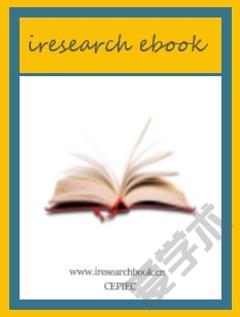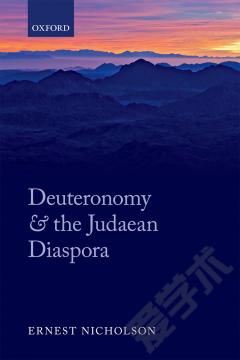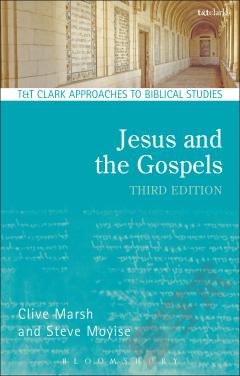Anti-Judaism and the Gospels
Anti-Judaism and the Gospels, ed. William R. Farmer. Harrisburg, PA: Trinity Press International, 1999. Pp. viii + 311. $24.00. This collection of essays, together with responses, is the fruit of a three-year research project sponsored by the University of Dallas on the subject of anti-Judaism and the Gospels. It focuses on three questions: (1) When and under what circumstances did the Gospels begin to serve anti-Jewish ends? (2) Can it be said that the evangelists were anti-Jewish? (3) Are there texts in the Gospels originally intended to injure the Jewish people or their religion? Farmer, in his introduction, correctly emphasizes that the term "anti-Judaism" in his own title is not only anachronistic but historically incorrect, since it identifies certain Jewish individuals and groups who were contemporary with Jesus with all of Judaism at his time and excludes him and his followers from the Jewish people. Amy-Jill Levine, in her essay on Matthew, distinguishing prophetic polemic, Jewish-Christian anti-Judaism, and Gentilizing anti-Judaism, does not accept the view that Matthew's Jesus is simply following current rhetorical practice, and asserts, as does Elaine Pagels, that "philosophers did not engage, as Matthew does here [ch. 23], in demonic vilification of their opponents." But, we may comment, when Cicero, in book 3 of his De Natura Deorum, speaks of his Stoic opponent as "regaling us with the vaporings of old harridans," this is pretty close to vilification. And if we view Matthew as, in effect, a lawyer or a politician, he is not more vitriolic than Cicero in the latter's abusive attacks on Verres, Catiline, and Antony. While not seeing Matthew as condemning Jews as a people or a race, since they are still part of the missionary purview, Levine says that she is forced, though with great reluctance, to conclude that Matthew is anti-Jewish. In his response Philip Shiner says that if anti-Judaism is defined as "antipathy toward Jews based upon a perceived inferiority of Jewish ways and manners," Matt 1 is not anti-Jewish since, far from denigrating the central figure of its narrative, Jesus, it traces Jesus' genealogy back to Abraham and David. But, we may reply, Matthew's point may well be that this is what must most be stressed, that the Jews, coming from such a glorious beginning, should have turned against the ideals of their own founders and consequently are to be condemned. Warren Carter, in his response, suggests that "parts of Matthew can be construed as anti-some-forms of Judaism by some readers at some times, but not all parts, not all Judaisms, and not by all readers." Objecting to Levine's text-centered approach, he emphasizes the roles and locations of readers in formulating anti-Jewish readings. To this we may respond that if Matthew were read in its entirety, as the Torah is read in its entirety in the course of every year by Jews, readers or listeners might form more nuanced views; but in a society in which few people were literate enough to read a document in its entirety, their views were often derived from very selected readings and sermons and, in particular, the readings on Good Friday. Daryl Schmidt, in his essay on Luke, focusing on the image of the implied readers, whom he identifies with the "G-d-fearers," quotes Lloyd Gaston's conclusion that LukeActs is one of the most pro-Jewish and one of the most anti-Jewish writings in the NT and remarks that rather than simply being a paradox, it is also an unresolved tension. Schmidt concludes that it is unlikely that the "G-d-fearers," reassured by Paul's rhetoric that loyalty to Judaism includes messianic claims about Jesus, would join in condemnation of Jews. We may, however, argue that these Gentiles who are "half-way Jews" might, indeed, feel guilty about their failure to be fully consistent in their attitude toward Judaism and thus might be drawn to condemn Judaism altogether, once they had found a kind of Judaism consonant with what some might call their "compromised Judaism. â¦
{{comment.content}}








 京公网安备 11010802027623号
京公网安备 11010802027623号